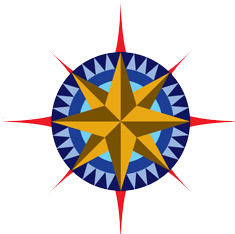What is a “Patriot”?
The list of associations recognized as “patriotic” in nature is extensive. The important thing is that your family may have Revolutionary Patriots who were not officers or troops in the Continental Line or Colonial militia.
Before the Industrial Revolution in the mid 1800s, the provision of arms and munitions involved cottage industries and the work of artisans.
- Each musket and cannon was individually forged, gun stocks were lathed individually from wood hewn by individuals, as were gun carriages and wagons.
- The muslin used for tentage was prepared in homes and small buildings and was hand-sewn.
- Wall Street did not exist as a center of finance and there was no Federal Reserve or National Bank. Funds to buy arms and feed troops had to be provided by those who had money.
Non-English persons can be recognized as Revolutionary Patriots since this was an early world war; French forces who fought in Europe materially supported the Patriot Cause.
The list below is borrowed heavily from the elgibility standards established by the Daughters of the American Revolution; it serves us well, too:
- Signers of the Declaration of Independence
- Military Service, such as participation in:
- Army and Navy of the Continental Establishment
- State Navy
- State and Local Militia
- Privateers
- Military or Naval Service performed by French nationals in the American theater of war
- Civil Service, under authority of Provisional or new State Governments:
- State Officials
- County and Town Officials, such as:
- Town Clerk
- Selectman
- Juror
- Town Treasurer
- Judge
- Sheriff
- Constable
- Jailer
- Surveyor of Highways
- Justice of the Peace
- Patriotic Service, including:
- Members of:
- the Continental Congress
- State Conventions
- State Assemblies
- Membership in committees made necessary by the War, including service on committees which furthered the cause of the Colonies from April 1774, such as:
- Committees of Correspondence
- Committees of Inspection
- Committees of Safety
- Committees to care for soldier’s families
- Signers of Oaths of Fidelity and Support, Oaths of Allegiance, etc.
- Participants in the Boston Tea Party
- Defenders of Forts and Frontiers
- Signers of petitions addressed to and recognizing the authority of the Provisional and new State Governments
- Doctors, nurses, and others rendering aid to the wounded
- Ministers who gave patriotic sermons and encouraged patriotic activity
- Those who furnished a substitute for military service
- Prisoners of war or refugees from occupying forces
- Prisoners on British prison ships
- Service in the Spanish Troops under Galvez or the Louisiana Militia after 24 December 1776
- Service performed by French nationals within the colonies or in Europe in support of the American cause
- Those who rendered material aid, in Spanish America, by supplying cattle for Galvez’s forces after 24 December 1776
- Those who applied in Virginia for Certificates of Rights to land for settlement and those who were entitled to and were granted preemption rights
- Those who took the Oath of Fidelity to the Commonwealth of Virginia from October 1779 to 26 November 1783
- Those who rendered material aid such as:
- People who furnished supplies—with or without remuneration
- People who lent money to the Colonies
- Munitions makers
- Gunsmiths
- Members of:
